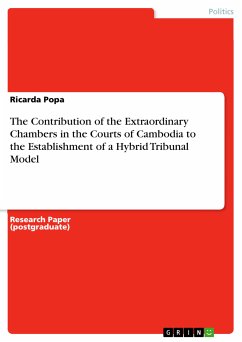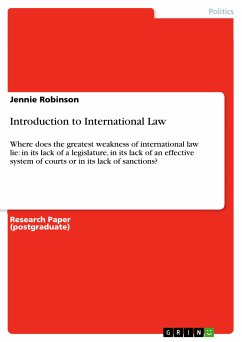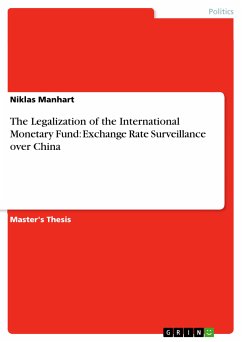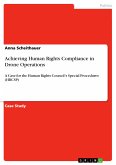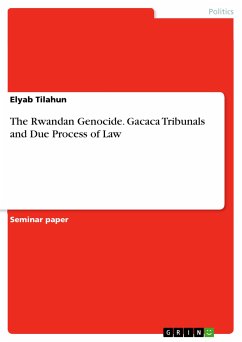Essay from the year 2002 in the subject Politics - International Politics - Topic: Public International Law and Human Rights, grade: 17 von 20 (A-), University of St Andrews (Department of Politics), course: IR 2004, language: English, abstract: This essay will show how complex it is for states to react to non-compliance, that will mean the violation of treaties. The reasons for difficulty in replying to breaches of international law1 are based on three main factors: States will respond if they have the interest, legitimacy of response and the power to act. If one of these points is missing, a country will find it hard to act. However in most cases there will be a reaction, even if this is seen only in the articulation of protest. Nevertheless, serious measures like an embargo, or an intervention to pursue a punishment or the reinstatement of order, depend on the previous factors. Firstly we shall deal with the question of legitimacy, secondly with the connection of interest and hierarchy of states; and finally, the interlinkages between these factors will be demonstrated by means of examples. It is important for states in order to justify their move to their own population and to maintain international reputation, to have a legitimacy to react. Therefore it is necessary that the breach of the law occurred intentionally, is proven, and the reaction to the breach does not itself contradict international law. In the following these three ideas will be explained.



